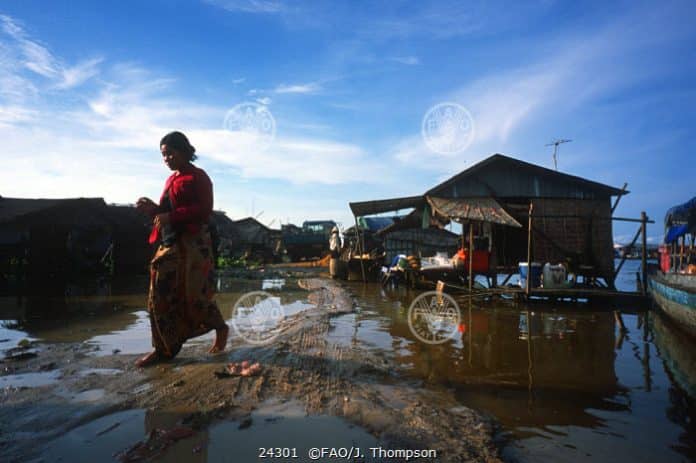FAO at the UN Climate Change Conference COP27
Sharm El-Sheikh, 06 November – 18 November 2022
This year’s United Nations Climate Change Conference (COP27) is taking place at the end of a year where extreme climate events have demonstrated again the urgency to curb greenhouse gas emissions.
A UN climate change report shows that while the emissions are reducing, they are not going down fast enough to limit global temperature rise to 1.5 degrees Celsius by the end of the century in line with the 2015 Paris Agreement goal. And if the world is unable to achieve this, the worst impacts of climate change like severe drought, heatwaves and floodings will only get worse and more frequent. This in a context where extreme weather events, along with geopolitical tensions and the COVID-19 pandemic have led to greater food insecurity, malnutrition and poverty.
The global demand for food, feed, fuel and fibre is increasing, with estimates that the world will need 50 percent more food by 2050 to feed the increasing global population. Currentlysome 828 million people face hunger and a third of the world’s population – 2.3 billion people – do not have access to adequate food.
While agrifood systems contribute to and are affected by the impacts of the climate crisis, ecosystem degradation and biodiversity loss, they are also part of the solutions.
The Food and Agriculture Organization of the United Nations (FAO) is participating at this year’s COP 27, through a series of initiatives and events, the full programme of which can be found here. FAO will promote ways in which agrifood systems transformation can be part of the solution to the climate crisis and how food security can be achieved. FAO will be using its expertise and experience to lead discussions on how to transform agrifood systems through innovative solutions to make them inclusive, resilient and sustainable to adapt to and mitigate the effects of climate change and push for greater investment in achieving this. FAO will highlight the need for engaging with populations most affected by climate change like women, youth, smallholder farmers and Indigenous People who can play a crucial role in climate change adaptation and mitigation.
Together with CGIAR and The Rockefeller Foundation, FAO is hosting the Food and Agriculture Pavilion, supporting the Water and Climate Pavilion.
In partnership with the Egyptian COP27 Presidency, FAO will highlight the importance of food systems through the Food and Agriculture for Sustainable Transitions Initiative (FAST), a global agriculture initiative built on tangible deliverables with a strong focus on governance. FAO is also part of the launch of the initiative on Climate Action and Nutrition (I-CAN), and the 50 by 2050 Initiative led by Egypt to recycle 50 percent of Africa’s waste by 2050.
At COP27, FAO will outline how the organization works with its Members and other partners to address the impacts of the climate crisis across agricultural sectors.
Detailed information on FAO’s participation at COP27 can be found here.

